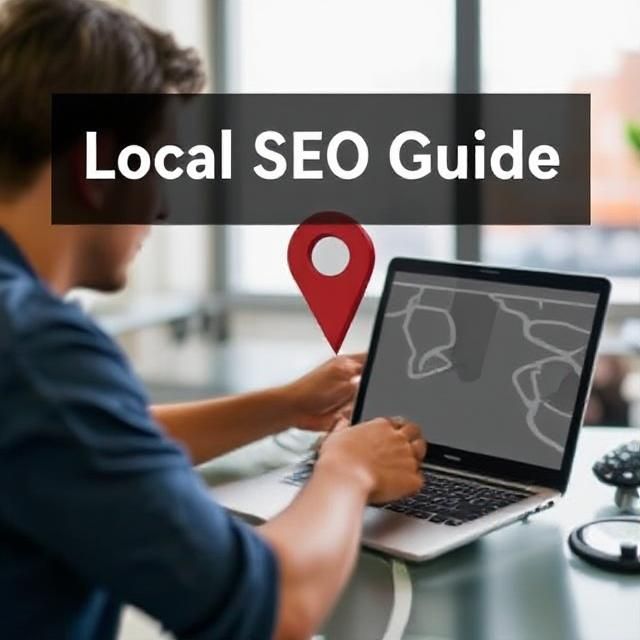3 minutes
Last Updated on Apr 23, 2025

If you're a local business owner, showing up in local search results—especially on Google Maps—can make all the difference when it comes to getting found by nearby customers. With more people using phrases like “near me” or searching directly on Google Maps, Local SEO has become essential for staying competitive.
This guide breaks down exactly how to improve your Google Maps ranking and get more eyes and feet in the door.
Whether you're a dentist, restaurant owner, or run a digital agency, showing up on the Google Maps 3-Pack (those top three listings that appear before organic search results) means more visibility, more traffic, and ultimately, more leads. The higher you rank, the more likely people are to call, click, or visit.
Unlike traditional SEO, Local SEO focuses on optimizing your presence for a specific geographic area. And Google Maps is the go-to spot for local intent searches.
Your Google Business Profile (formerly Google My Business) is the most critical piece of the Local SEO puzzle.
To optimize it:
Ensure your business name, address, and phone number (NAP) are correct.
Choose the most accurate primary category for your business.
Write a detailed business description using keywords naturally.
Add high-quality photos and videos.
Keep your hours of operation updated.
Regularly post updates, offers, or events.
A well-optimized Google Business Profile sends strong local signals to Google and builds trust with potential customers.
Online reviews do more than boost your reputation—they also influence Google Maps ranking. Businesses with consistent, positive reviews are more likely to appear at the top of local search results.
Tips to generate reviews:
Ask happy customers to leave a review (in person or via follow-up emails).
Respond to all reviews—positive or negative.
Avoid fake or incentivized reviews; Google can penalize you for this.
Customer engagement signals to Google that your business is active and trustworthy, which can improve your local search visibility.
Citations are mentions of your business name, address, and phone number across the web (think directories like Yelp, Yellow Pages, or industry-specific sites).
Make sure:
Your NAP is consistent across all platforms.
You’re listed in relevant local and industry directories.
You correct any outdated or duplicate listings.
Accurate citations support your authority in local search, helping you rank higher on Google Maps.
Adding a Google Map with your business location on your contact or homepage is a subtle but powerful signal for Local SEO. It confirms to Google (and your visitors) where you are, reinforcing your relevance for local searches.
Additionally, use schema markup (Local Business schema) to help Google better understand your business information.
If your goal is to get more leads from local customers, you need to speak their language. Blog posts, landing pages, and service descriptions should include:
Local keywords (e.g., “best pizza in Austin”)
Nearby landmarks or neighborhoods
Community events or news
Testimonials from local customers
This not only boosts your local search visibility but also helps build credibility with a local audience.
Backlinks from local websites and organizations help Google trust your business. Reach out to:
Local blogs
Chamber of commerce websites
Partner businesses
Event sponsorships or collaborations
These locally-relevant links strengthen your domain authority and reinforce your position in Google Maps rankings.
Most local searches happen on mobile devices. If your site is slow or hard to navigate, you're not just losing customers—you’re also risking lower rankings.
Make sure your website:
Loads quickly
Is mobile-responsive
Has easy click-to-call buttons and contact forms
Google considers user experience a ranking factor, especially in local SEO.
It’s not about gaming the system; it’s about showing up as a trustworthy, relevant, and helpful business in your community, over and over again.
Each time you help someone succeed, you continue optimizing your Google Business Profile, getting reviews, creating citations, building authority, and writing local content… which means that you’ll improve your visibility in local search and start getting more leads without paying for ads.
Are you interested in getting assistance in organizing your Local SEO strategy? Tell me and I’ll lead you through the process.